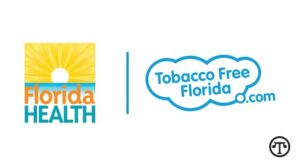Health, Home & Family
 By Lacoadia Burkes, Acting Bureau Chief, Tobacco Free Florida
By Lacoadia Burkes, Acting Bureau Chief, Tobacco Free Florida
(NAPSI)—New Year’s resolutions often focus on health, finances, and fitness, but quitting tobacco might be the one change that unlocks them all. According to recent research, nearly four in five New Year’s goals involve improving health. Other perennial favorites include things like having a better financial outlook and being more active. One thing these and many other self-improvement goals have in common is—quitting tobacco is one of the best and most impactful ways to achieve them.
Connection Between Resolutions and Quitting Smoking
When you quit smoking, your body will start to reward you almost immediately. Within days, your sense of taste and smell improves. Within weeks, your breathing becomes easier, and your circulation improves. And over time your risk of heart disease, stroke, and cancer drops significantly.
Financially, the impact is equally dramatic. A pack-a-day smoker in Florida spends over $2,000 a year on cigarettes. Think about what that money could mean for your family—a vacation, a down payment on a car, simply more breathing room in your monthly budget. If saving money is part of your resolution, keep a visual reminder of your goal, like a picture of that dream vacation or new car, in your wallet or on your mirror to stay motivated. Continue reading

Consulting, thyroid and woman with doctor in hospital for sick, cancer or medical test. Healthcare, medicine and virus with physician and checking throat of patient in clinic for emergency and injury.
(NAPSI)—An estimated 20 million Americans have some form of thyroid disease.1 During January, recognized as Thyroid Awareness Month, YARAL Pharma is raising awareness of thyroid disease, particularly hypothyroidism, a condition in which the thyroid gland does not produce enough thyroid hormone. Despite its prevalence, thyroid disease remains widely misunderstood, with many people unaware of its signs and symptoms.
The Role of the Thyroid
The thyroid, a small butterfly-shaped gland located in the neck, plays a vital role in regulating metabolism, energy levels, and overall hormonal balance. Conditions such as hypothyroidism, hyperthyroidism, and thyroid nodules can significantly impact health and quality of life. However, up to 60% of individuals with thyroid disease are unaware of their condition, often due to a lack of awareness about the signs and symptoms, leading to delays in diagnosis and treatment.1
Signs and Symptoms
Thyroid disorders can manifest in various ways, including fatigue, weight changes, mood fluctuations, and cognitive difficulties. These symptoms often resemble common day-to-day ailments, making them easy to overlook. As a result, many patients live with thyroid conditions for years before seeking treatment. Continue reading
(NAPSI)—Here’s something students, parents and teachers in New York and New Jersey may be glad to learn: A group of experts has come up with a way to make environmental education easier for students to understand—and to act on.
This first-of-its-kind effort, called the Environmental Education Initiative (EEI), helps students engage in environment science, and make informed decisions that support healthy environments .
Powered by worldwide edtech leader Discovery Education, the Environmental Education Initiative supports civic engagement with standards-aligned resources that explore contemporary topics in environmental studies.
Who is Involved?
Experts at Stanford University carefully reviewed a body of academic literature over 20 years to measure the effect of environmental education for K-12 students. Then the National Environmental Education Foundation, Nucor, Honeywell, Itron, LyondellBasell, Subaru of America, Inc., and Niagara Cares all helped create the Environmental Education Initiative alongside Discovery Education. Continue reading
 (NewsUSA) – Artificial intelligence is poised to be a game-changer in managing the increasingly congested and poten-tially contested domain of space, from Earth’s orbit to the Moon and beyond, according to a new podcast from the Spe-cial Competitive Studies Project (SCSP), a nonprofit and nonpartisan initiative with a goal of making recommendations to strengthen America’s long-term competitiveness in AI.
(NewsUSA) – Artificial intelligence is poised to be a game-changer in managing the increasingly congested and poten-tially contested domain of space, from Earth’s orbit to the Moon and beyond, according to a new podcast from the Spe-cial Competitive Studies Project (SCSP), a nonprofit and nonpartisan initiative with a goal of making recommendations to strengthen America’s long-term competitiveness in AI.
At the recent AI + Space Summit hosted by SCSP, General Jay Raymond (U.S. Space Force, Ret.) joined SCSP’s NatSecTech podcast host Jeanne Meserve to discuss the future of space as a warfighting domain. They explore how AI can improve space traffic management, surveillance, acquisition, and data fusion; the growing role of commercial part-nerships; and the need for stronger norms, faster capabilities, and a technically skilled workforce.
Many Eyes in the Sky
Launching satellites or anything else is becoming more complicated because of the volume of objects in the Earth’s orbit, said Gen. Raymond. “You have to make sure you don’t launch something into something else,” he noted. The increased number of satellites and other objects have made the world a more transparent place, as a lot of the current objects in space are intelligence surveillance reconnaissance satellites, he added. Continue reading
F???????????? ???????????????????????????????????????? ???????????????????? ????????????????????????????
With freezing temperatures possible, Water Utility Supervisor Butch Goodman reminds all Town of Lady Lake water customers — including apartment communities, medical facilities and commercial properties — to take a few simple steps to protect their plumbing and avoid service interruptions.
Follow the “4 P’s” of cold weather preparation:
Protect your pipes
Cover or insulate any exposed pipes, outdoor fixtures and hose bibs. Unprotected lines can freeze, crack and lead to costly damage and temporary loss of water service.
Pay attention to backflow devices
Backflow preventers are especially vulnerable to freezing if they are not properly insulated or protected. A frozen backflow device can interrupt water service until temperatures rise and may require repairs or replacement. Continue reading
Dear Editor
When we allowed the Chinese to buy Tyson Meat plants I knew it was just a matter of time and they would try to Hurt us. They are closing Nebraska and calling back meat from Texas, driving beef prices up. Cattle numbers have dropped to a 70 year low. Trump will have to rebuild the ranching industry doing something to increase the size of the herds and the size of the cattle. Then build more processing plants. There is one in Gainesville called Grandma’s meat processing plant. I have talked to them and they sound like they know what they are doing. One of the things some Processing houses don’t take into effect is when the animal is stressed from the trip to the processing plant their adrenaline is peaking they need to calm down before processing. Grass fed beef is bad about that, I talk to a lady that sold Grass fed beef. She had to credit several people because of the stress when they were processed, NOT GOOD! Aging beef can ruin the meat if the fat goes bad way before there beef is effected, so they have to watch that, if they get behind it could ruin the rest of the meat. Continue reading
 (NAPSI)—In local communities across America, the “next big idea” often takes shape in a garage, a small startup office or a community college lab. New American inventors and entrepreneurs are the backbone of our nation. They are responsible for turning bold ideas into products that create jobs and make life easier for all of us. They are often the lifeblood of local economies.
(NAPSI)—In local communities across America, the “next big idea” often takes shape in a garage, a small startup office or a community college lab. New American inventors and entrepreneurs are the backbone of our nation. They are responsible for turning bold ideas into products that create jobs and make life easier for all of us. They are often the lifeblood of local economies.
But in recent decades, a particular kind of legal threat has emerged that puts that engine of entrepreneurial innovation at risk. These lawsuits come from shell companies that are commonly known as patent trolls. Patent trolls don’t invent things or make products but exist solely to pursue lawsuits related to patents they buy. Patent troll litigation costs U.S. firms an estimated $29 billion annually in direct legal expenses, and approximately $60 billion when accounting for lost firm value and diverted resources. Patent troll litigation surged 22% from 2023 to 2024 alone, making it a fast-growing issue for American business.
Patent trolls have been at work for decades. But now, in a new twist, patent trolls are being hired to file lawsuits against others in the industry. The aim isn’t to defend a real invention, but to make it harder for rivals by driving up legal costs, scaring off customers, delaying product launches, or pushing for monetary settlements. This puts more pressure on the price of everyday technology products. Continue reading
 (NewsUSA) – Artificial intelligence is poised to be a game-changer in managing the increasingly congested and poten-tially contested domain of space, from Earth’s orbit to the Moon and beyond, according to a new podcast from the Spe-cial Competitive Studies Project (SCSP), a nonprofit and nonpartisan initiative with a goal of making recommendations to strengthen America’s long-term competitiveness in AI.
(NewsUSA) – Artificial intelligence is poised to be a game-changer in managing the increasingly congested and poten-tially contested domain of space, from Earth’s orbit to the Moon and beyond, according to a new podcast from the Spe-cial Competitive Studies Project (SCSP), a nonprofit and nonpartisan initiative with a goal of making recommendations to strengthen America’s long-term competitiveness in AI.
At the recent AI + Space Summit hosted by SCSP, General Jay Raymond (U.S. Space Force, Ret.) joined SCSP’s NatSecTech podcast host Jeanne Meserve to discuss the future of space as a warfighting domain. They explore how AI can improve space traffic management, surveillance, acquisition, and data fusion; the growing role of commercial part-nerships; and the need for stronger norms, faster capabilities, and a technically skilled workforce.
Many Eyes in the Sky Continue reading
(NAPSI)—Good news: According to a recent report from the American Association for Cancer Research (AACR), discoveries across basic, translational, and clinical research as well as population sciences are driving advances in cancer medicine and early detection, leading to a steady decline in the overall U.S. cancer death rate, and allowing more people to live longer and fuller lives after a cancer diagnosis.
From the AACR Cancer Progress Report 2025, here’s a look at some recent breakthroughs.
Between July 1, 2024 and June 30, 2025, the U.S. Food and Drug Administration (FDA) approved 20 new anticancer therapeutics, including:
- the first T-cell receptor (TCR) T-cell therapy, approved for patients with soft tissue sarcoma;
- a new therapeutic antibody targeting a novel protein on stomach cancer cells, which helps those with gastric or gastroesophageal cancer;
- the first IDH-targeted therapy for treating brain tumors, which is bringing new hope to young adult patients who have a mutation in this gene; and
- two new antibody-drug conjugates, both of which were approved to treat lung cancer and one that was also approved to treat breast cancer.
At the same time, FDA also approved:
- new uses for eight previously approved anticancer therapeutics;
- a wearable device that uses low-intensity electrical fields to slow the growth of lung cancer cells;
- two new minimally invasive early detection screening tests, including the first liquid biopsy test and a next-generation multitarget stool DNA test for colorectal cancer screening;
- a device for at-home sample collection for cervical cancer screening; and
- several AI-powered devices and software tools for aiding in cancer risk prediction, diagnosis, and early detection.
 (NAPSI)—In most of the United States, respiratory illnesses like flu, COVID-19, RSV, and pneumococcal disease consistently show increased activity between October and March. That’s in part because during the fall and winter, people spend more time indoors and close to one another, making it easier for respiratory illnesses to spread.
(NAPSI)—In most of the United States, respiratory illnesses like flu, COVID-19, RSV, and pneumococcal disease consistently show increased activity between October and March. That’s in part because during the fall and winter, people spend more time indoors and close to one another, making it easier for respiratory illnesses to spread.
These infectious diseases can cause more than just a few days of sickness or missed work. In some cases, they can disrupt your life, cause a financial burden, or even lead to complications such as long-term health issues or hospitalization—and infants, older adults and individuals with chronic health conditions are at higher risk for severe illness.
That’s why vaccination is an important step to help stay protected this fall. Getting vaccinated can mean the difference between a mild infection and a severe illness.
Respiratory Vaccines Help Protect You and Those You Love
Vaccination is the best protection—helping to reduce the spread of respiratory illnesses in your community, especially to those most vulnerable. Continue reading

